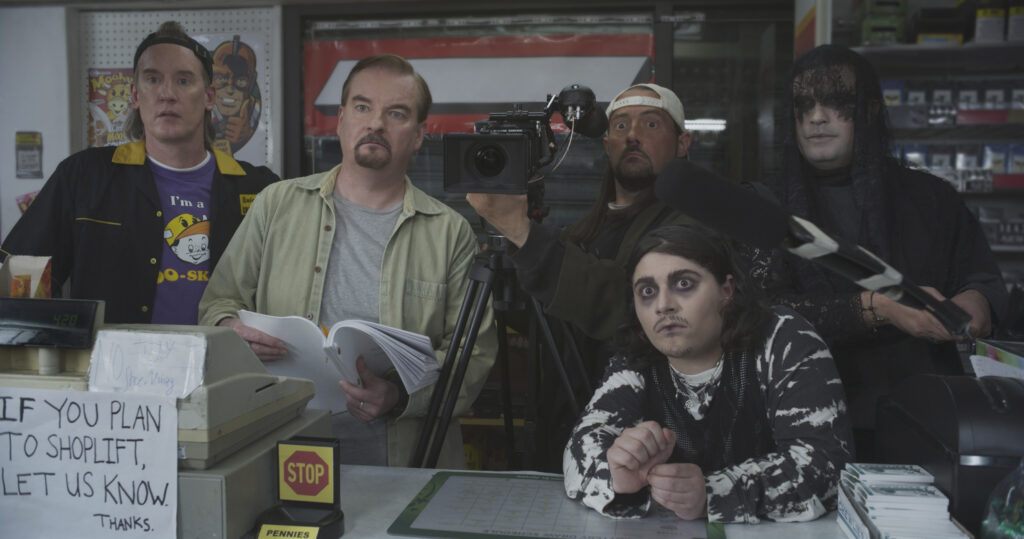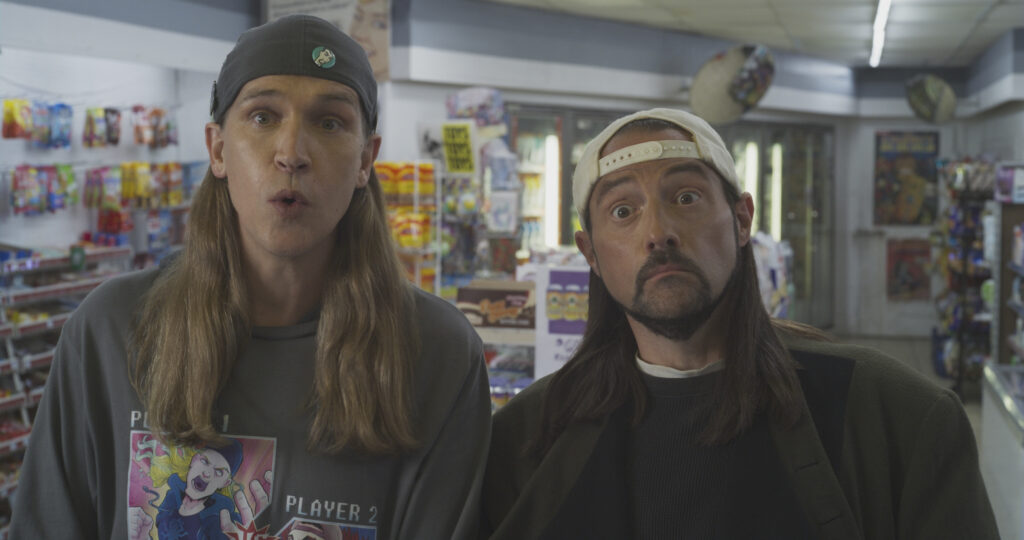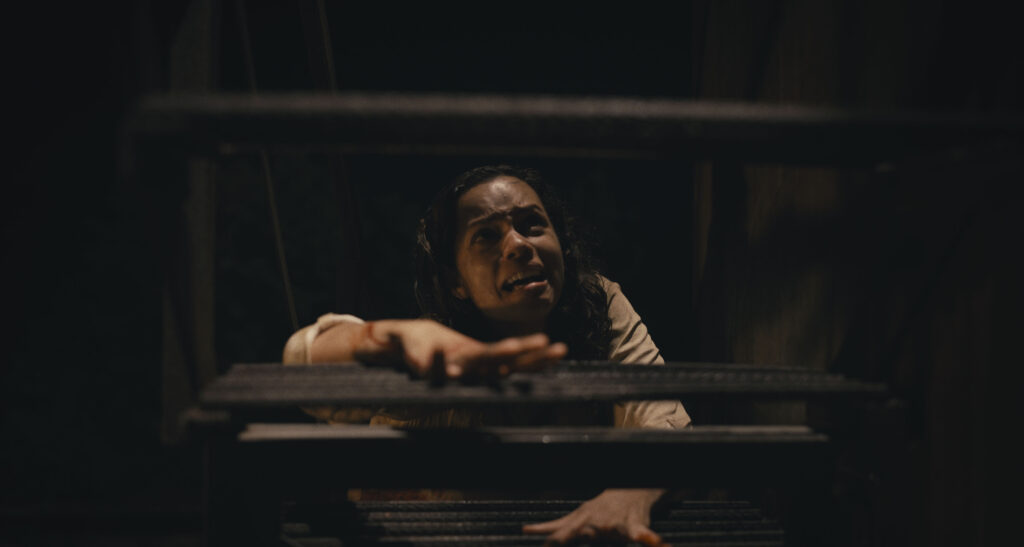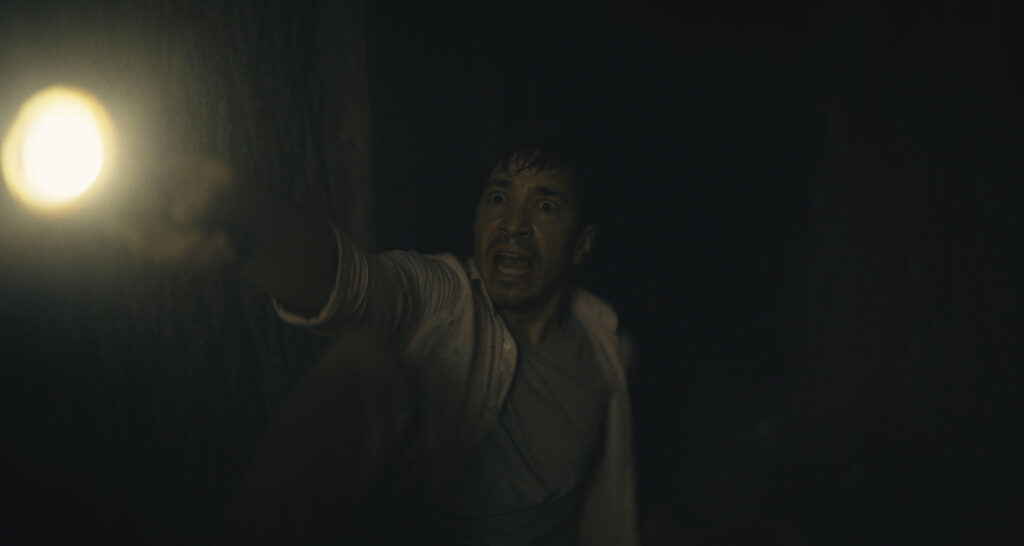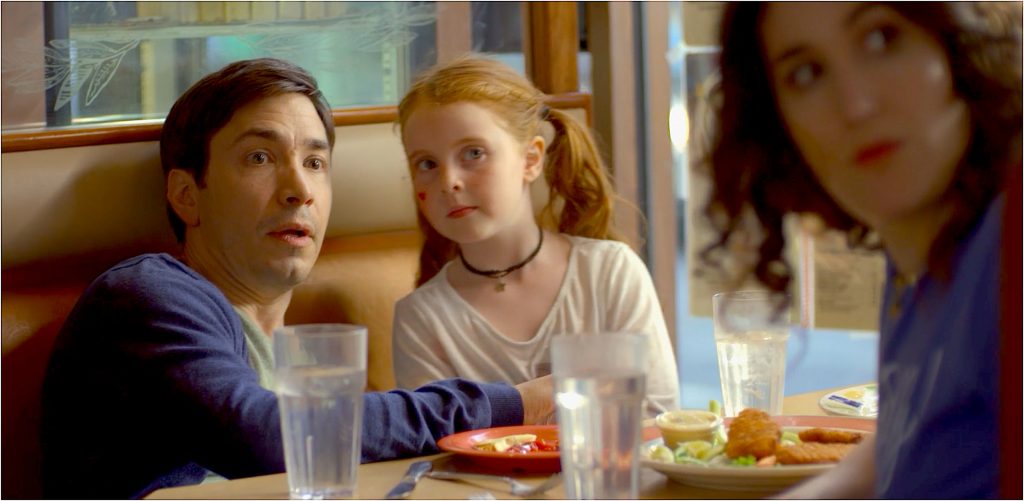November 20, 2023
by Carla Hay
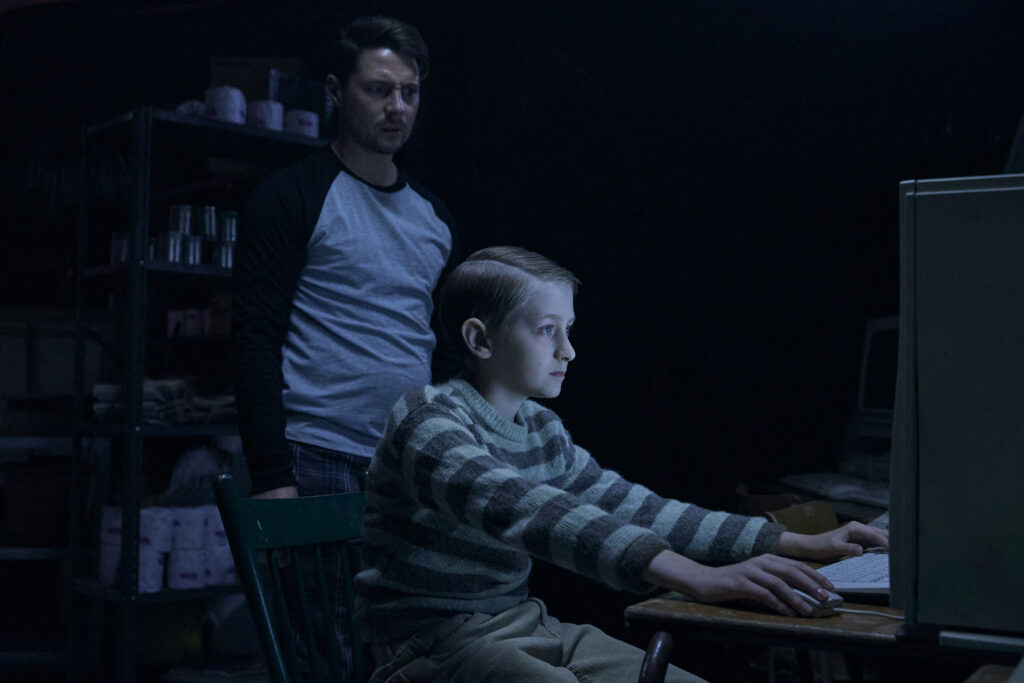
Directed by John McPhail
Culture Representation: Taking place in New York City in 2017 (and briefly in 1996), the horror film “Dear David” (based on a real Internet story that went viral) features a predominantly white cast of characters (with a few African Americans, Latin people, and Asians) representing the working-class and middle-class.
Culture Clash: A comic artist who works for BuzzFeed believes that he is being haunted by a ghost named David, and he chronicles his experiences in messages on Twitter.
Culture Audience: “Dear David” will appeal primarily to people who don’t mind watching mindless and incoherent horror movies with annoying characters.
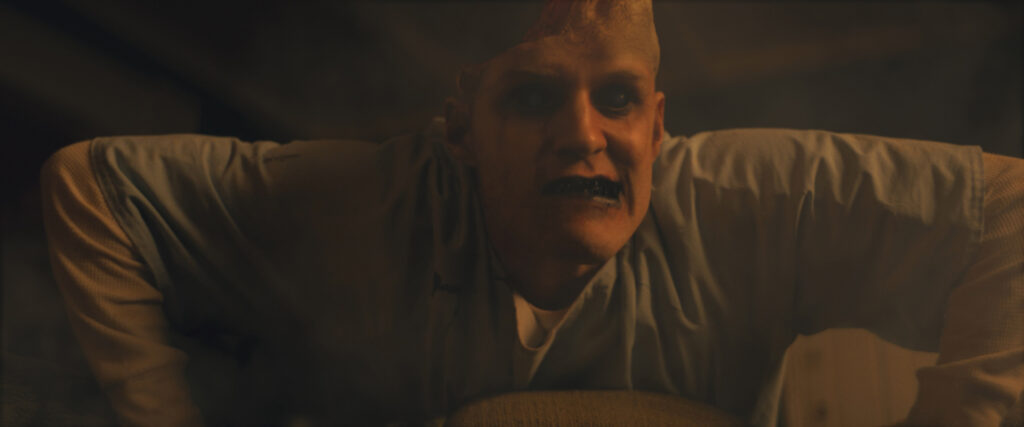
“Dear David” is what happens when misguided filmmakers think a social media fad story can be made into a movie that a lot of people weren’t asking for in the first place. This pointless horror flick is boring, jumbled, and a complete waste of time. “Dear David” is based on true events from 2017, when a BuzzFeed comic artist named Adam Ellis went on Twitter to detail his supposed encounters with a murderous ghost named David. BuzzFeed Studios is one of the production companies behind this forgettable flop movie.
Directed by John McPhail and written by Mike Van Waes, “Dear David” is the first feature film for Van Waes. The “Dear David” screenplay is the weakest link in this terrible movie, but it’s certainly not the only reason why “Dear David” is a complete failure on every level. What viewers will see are monotonous and repetitive scenes of protagonist Adam Ellis (played by Augustus Prew) having nightmarish visions that he’s not sure are real or part of his imagination.
The beginning of this movie shows this introductory statement: “In 2017, Adam Ellis began documenting a series of strange encounters that were happening in his apartment, He posted them on Twitter, and these ‘Dear David’ posts became a viral sensation. The following is based on those true events.”
If you believe that “on Twitter” and “true events” are automatically synonymous, then perhaps you’d like to think that Twitter owner Elon Musk can buy the Brooklyn Bridge too. Hauntings that were fabricated to make people famous have been around much longer than social media existed. You only need to look at the proliferation of paranormal-themed TV shows and Web series to see that plenty of people are trying find fame and fortune from “investigating” hauntings.
And so, the motives of Adam Ellis are obviously suspect from the start. In real life, Ellis has been open about his mental health issues, which might or might not have played a role in his ghostly sightings. The fact that BuzzFeed cashed in on an employee’s admittedly shaky mental health by making this awful movie makes “Dear David” even more repulsive.
“Dear David” begins in New York City in 1996, a year when the Internet was fairly new to the world. A reclusive loner boy named David Johnson (played by Cameron Nicoll), who’s 10 years old, spends a lot of time using the Internet on a computer in the basement of his family home. David’s mother is worried about his Internet activities. David’s father has the opposite opinion: He thinks that the Internet is a sensation that will take over the world.
An early scene in the movie shows David getting cyberbullied in a chat room by an anonymous person, who sends David a message calling David a “loser.” David writes back, “Why are you so mean?” The harasser answers, “Why don’t you kill yourself?”
The movie then fast-forwards to 2017. At BuzzFeed headquarters in New York City, Adam is a comic artist who’s not doing very well on the job. He’s distracted by Internet harassers who insult his work. Adam’s annoying boss Bryce (played by Justin Long, in a quick cameo) hints that Adam could be fired if Adam doesn’t get a larger audience for Adam’s work. Bryce says that Adam has “relatable” content, but Adam’s audience reach is “kind of lame.”
Adam has two writer co-workers whose desks are right next to his. Evelyn (played by Andrea Bang) is Adam’s closest friend at work and one of the few people he trusts will be supportive of him when things in his life get weird. Norris (played by Tricia Black) is phony and very competitive. Norris is the type of person who tries too hard to impress the boss while making passive-aggressive digs at her co-workers.
“Dear David” spends quite a bit of time on Adam’s relationship with his boyfriend Kyle Sanchez (played by René Escobar Jr.), who is loving and loyal but getting impatient and feels somewhat hurt that Adam is not ready to introduce Kyle to Adam’s mother. (The movie never says what happened to Adam’s father.) There’s also some other drama about how Adam hasn’t come out as gay to everyone in his life.
Who is the ghost that’s causing the terror in the movie? Two unlucky teens named Kevin (played by Seth Murchison) and James (played by Ethan Hwang) find out when they use false identities to go on the Internet to play pranks on people. An example of the pranks is Kevin and James pretending to be attractive young women looking for dates with men, and when they get men to be interested, Kevin and James reveal that they are really underage boys and shame the men for being perverts.
One day, someone on the Internet named David falls for one of their pranks. David doesn’t think it’s funny and tells Kevin and James that they are both going to die. During their contentious online conversation, David warns Kevin and James that when people first talk to David online, they can only ask David two questions.
It should come as no surprise that one of the teens breaks this rule and asks more than two questions. One of the questions Kevin asks is: “How am I going to die?” David answers, “Alone, afraid, and wetting your bed.” You can easily guess what happens to Kevin in this dreadfully predictable movie.
Adam also encounters David online, but David torments Adam much longer than David’s usual victims. After doing some research, Adam is convinced that the David who’s been contacting him on the Internet and who’s attacking him in these haunting visions is the ghost of a boy named David, who had a tragic story. Take a wild guess which David that is. The ghost who is haunting Adam appears to be an adult version of David (played by Jarrett Siddall), who doesn’t look very menacing and looks more like psychiatric facility patient who needs to brush his teeth.
“Dear David” could’ve had so many interesting things to say about cyberbullying and ghost hauntings, but the movie doesn’t know what to do with these narratives and just makes everything a mess. The acting performances are subpar for the movie’s characters, who are hollow, irritating or both. The overall direction for “Dear David” is sloppy and unfocused. Because the foundation of “Dear David” is a weak and gimmicky Internet story that briefly went viral, that foundation sinks quickly into a cesspool of cinematic muck where stupid horror movies are quickly forgotten.
Lionsgate released “Dear David” in select U.S. cinemas, on digital and VOD on October 13, 2023.

